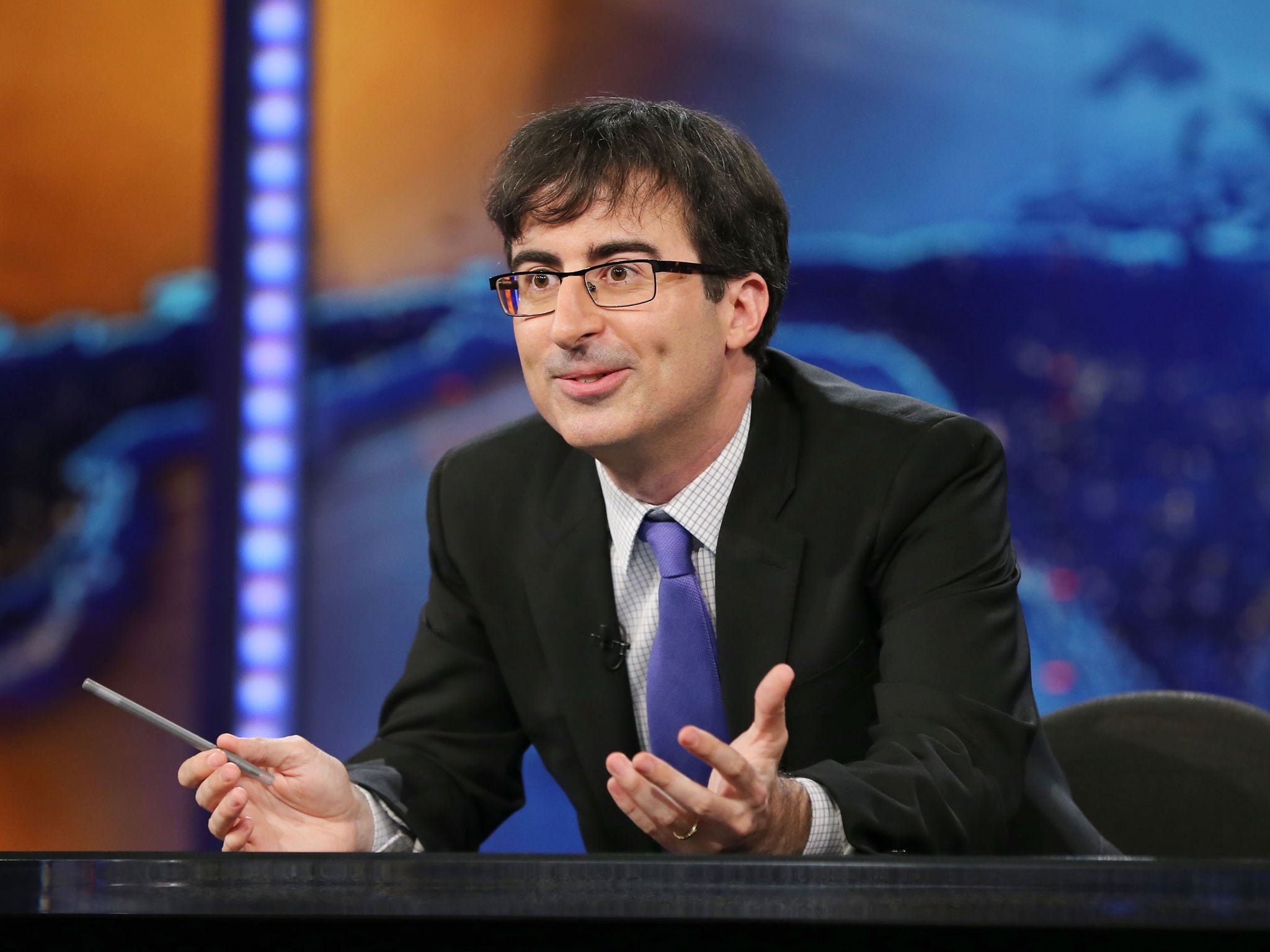A refreshing lack of deference: why Brits challenging the establishment are muscling in on US media
Media commentator David Carr identifies 'British invasion' of talent

Fair play, an unfathomable class system and lousy teeth might all form part and parcel of the British stereotype in the eyes of our transatlantic cousins.
Yet it seems a new and surprisingly subversive national trait is taking the American media world by storm - our desire to challenge rather than cosy up to the establishment.
Influential New York Times media commentator David Carr has identified a new "British invasion" of talent of which Birmingham-born comedian John Oliver - currently earning rave reviews as stand in for Jon Stewart on The Daily Show - is only the latest and most high profile example.
And while the British accent continues to deliver a perceived IQ premium in the minds of the listener, the real reason for the success is a refreshing lack of deference, it is claimed.
"The one question all young reporters on Fleet Street are taught to keep foremost in their mind when interviewing public figures can be best paraphrased as, "Why is this jerk lying to me? The news that flows from that mind-set is often far more interesting than American media, which frequently bow to power even as they seek to hold it accountable," wrote Mr Carr.
Stewart joins the likes of fellow Brits Piers Morgan, who replaced Larry King at CNN, former BBC director general Mark Thompson at the New York Times and Deborah Turness, president of NBC News, in occupying some of the biggest jobs in the US media industry.
"The easy answer is the triumph of British charm and politeness set against American brashness and confrontation. I actually think it is exactly the opposite," he added.
According to Mr Carr, Americans look on the often febrile nature of our national discourse with something like envy.
"As the hacking scandal revealed, it's a very small tree house in which the various elites not only know one another but socialise as well. Newspapers and radio still play a central role in the civic life of Britain, and Parliament is a kind of gladiator pit that can make Congress seem like a Montessori school," he concluded.
Enterprising journalists have long been wise to the opportunities stateside. David Frost's 1977 interviews with President Nixon have gone down in TV legend. Harold Evans and Tina Brown became the British media power couple of the 1980s whilst Anna Wintour has been at Vogue for more than 20 years.
Newspaper stalwarts Colin Myler and Gerard Baker now edit the New York Daily News and Wall Street Journal respectively whilst Joanna Cole, helms Cosmopolitan. Meanwhile, a slew of former BBC chiefs lead the mighty US networks and British conceived formats dominate the American reality TV landscape.
Author and an associate professor of journalism at New York's City University, Jeff Jarvis, said America offered Britain's media best and brightest to apply their skills to bigger and more lucrative markets.
"British (journalistic) brands are aware of how small the market and the island is at home so they see the opportunity for world domination again. There is a colonial element there," he said.
"When TV killed the second and third newspapers in every city in the 1950s the monopolies that survived adopted a one-size fits all voice. In the UK there is a spectrum and a cacophony of voices. That competitive landscape became intrinsic to the British media as opposed to the dull voice of the US media.
"It is the same as it has been in the past - the voice, the attitude, the sense of advocacy and asking the hard questions. That is the advantage British people bring to the US media," he added.
Subscribe to Independent Premium to bookmark this article
Want to bookmark your favourite articles and stories to read or reference later? Start your Independent Premium subscription today.

Join our commenting forum
Join thought-provoking conversations, follow other Independent readers and see their replies